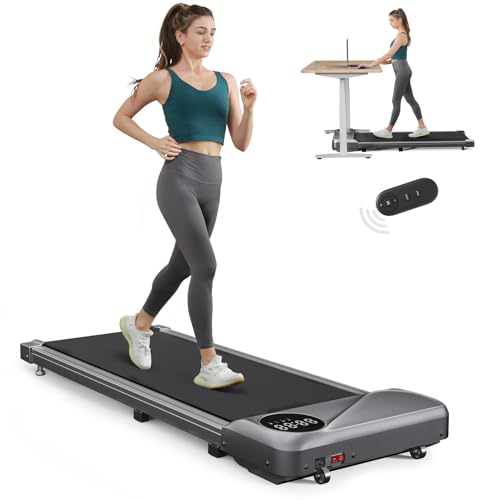Five Walking Machine Projects To Use For Any Budget
The Walking Machine: A Comprehensive Guide to Your Fitness Companion
In today's hectic world, where time is a high-end, preserving a constant workout regimen can be a difficulty. For numerous, a walking machine— frequently known as a treadmill— works as a perfect fitness companion. This article provides an in-depth appearance at walking machines, including their advantages, types, upkeep suggestions, and regularly asked questions.
Why Choose a Walking Machine?
Walking machines offer a practical and efficient way to include cardiovascular workout into every day life. Here are a number of essential advantages:
- Convenience: Walking machines permit people to work out anytime, despite weather or time restraints. They are ideal for busy schedules.
- Adaptability: Users can walk, jog, or perform at their own rate and intensity.
- Security: Walking machines present a lower risk of injury compared to outdoor walking or running, especially for novices or those recuperating from injuries.
- Tracking Progress: Many treadmills included integrated monitors that track metrics like speed, range, and calories burned.
Types of Walking Machines
When thinking about a walking machine, it's necessary to select the ideal type based upon specific physical fitness objectives and area constraints. Below are the main kinds of walking machines:
Type
Description
Manual Treadmills
These machines do not have a motor, and users need to walk or go to turn the belt.
Electric Treadmills
Powered by an electric motor, allowing users to set the speed and slope effortlessly.
Folding Treadmills
Created for easy storage, these treadmills can be folded up when not in use.
Desk Treadmills
Ideal for a dual work and exercise environment, these compact machines enable walking while working.
Incline Trainers
These allow users to simulate uphill walking, improving workout intensity and calorie burn.
Selecting the Right Walking Machine
Choosing the right walking machine can substantially affect motivation and effectiveness. Here are some aspects to think about:
Key Features to Look For
- Motor Power: An effective motor guarantees a smooth and constant workout. For Zachary Wilshire , a 1.5 HP motor is normally adequate; for heavier usage, look for 3.0 HP and above.
- Belt Size: A larger and longer belt offers more area for a comfy stride. Standard sizes range from 16 inches wide and 50 inches long.
- Incline Options: Adjustable slope settings can mimic walking or running uphill, increasing the intensity of the exercise.
- Shock Absorption: Good shock absorption minimizes the risk of joint injuries and boosts convenience.
- Console Features: Look for built-in exercises, heart rate monitors, and connection features like Bluetooth for a more engaging experience.
Budget plan Considerations
Walking machines can be found in a vast array of prices, depending upon features and construction quality. Here's a rough budget breakdown:
Price Range
Features
Under ₤ 300
Standard handbook or small electric treadmills with minimal features.
₤ 300 – ₤ 700
Advanced electric treadmills with incline, medium power motors, and better warranties.
₤ 700 – ₤ 1500
Top quality electric treadmills with larger integrated display screens, extensive functions, and service warranties.
₤ 1500 and above
High-end models providing innovative innovation, features, and durable building for severe fitness enthusiasts.
Maintenance Tips for Your Walking Machine
To make sure durability and optimal efficiency of a walking machine, think about the following maintenance ideas:
- Regular Cleaning: Dust and sweat can accumulate on the machine and the belt. Wipe down the surfaces and clean the belt routinely.
- Lubrication: Depending on the design, lubing the running belt periodically can prevent wear and tear. Inspect the producer guidelines for recommended lubrication schedules.
- Inspection: Periodically check the machine for loose screws or worn parts. Tighten and replace as required.
- Calibration: Occasionally, examine the calibration of your machine's metrics to guarantee they offer accurate data.
- Proper Use: Follow the maker's recommendations for weight limits and functional guidelines.
Frequently Asked Questions About Walking Machines
1. Are walking machines a great workout?
Yes, walking machines supply an outstanding cardiovascular workout, can assist with weight loss, and enhance general health.
2. How frequently should I use a walking machine?
Goal for a minimum of 150 minutes of moderate-intensity aerobic activity per week, which can easily be accomplished with routine sessions on a walking machine.
3. Can I slim down on a walking machine?
Yes, integrating a walking machine regimen into a healthy diet can promote weight loss, especially if combined with intervals and incline training.
4. Is it safe for elders to utilize a walking machine?
Yes, walking machines can be safe for senior citizens with low-impact settings and security features like hand rails. However, people should seek advice from their doctor before starting any workout program.
5. What's the distinction in between a treadmill and a walking machine?
The term “walking machine” typically refers to a treadmill intended for walking, while “treadmill” can refer to machines utilized for numerous strengths, consisting of running.
With their flexibility and convenience, walking machines can significantly enhance one's fitness journey. By thoroughly choosing the right type, guaranteeing correct upkeep, and integrating various exercise strategies, users can maximize their walking machine's advantages. As with any exercise program, consistency is essential to accomplishing long lasting fitness outcomes.
